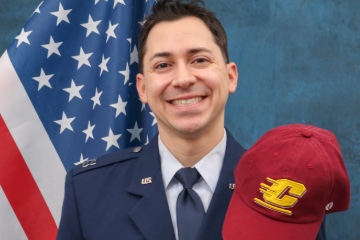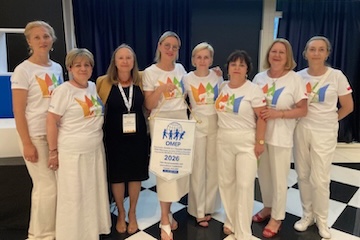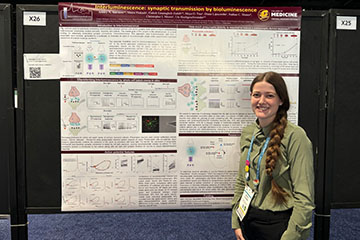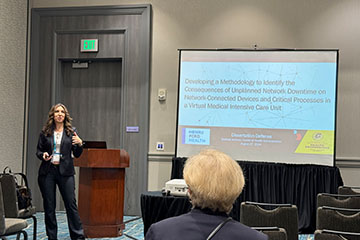Research transcends history
Students present research and connect with colleagues at international conference
History might be a thing of the past, but the subject provides many opportunities for original student research. That’s why graduate students from around the world gathered at Central Michigan University for the 2019 International Graduate Historical Studies Conference Friday, March 29.
The conference, sponsored by CMU’s history department, provided graduate students and select undergraduates with opportunities to present research to peers and professionals. Conference attendees asked questions and offered suggestions to help each other improve and strengthen their presentations.
“We’ve created a professional environment to prepare students for larger national or international events they will attend,” said Amy Greer, a CMU graduate student from Scotland responsible for planning the conference. “Research grows from presenting. A fresh set of eyes and questions from the audience help you think differently about your work."
Felix Zuber, a CMU graduate student from Germany who also was involved in planning the event, added that the collaborative environment provided a unique setting for aspiring historians to network with each other and professionals.
“It’s a very friendly atmosphere and a great opportunity to connect with people you’ll likely continue to see as you advance in the profession,” Zuber said.
Transcending boundaries
The conference focused on different historical topics and how they connect. Subjects of presentations included topics as wide ranging as cholera, the U.S. Civil War, genocide, immigration policy and witchcraft. More than 30 students from more than a dozen universities participated in the research exhibition.
The conference theme, “Transcending Boundaries,” captured the interdisciplinary aspects of the event and to the diversity of students represented in CMU’s graduate history program, Greer said.
“We have people from all over the world. Our department is very international and encompasses many different continental boundaries.”
The conference also broke down boundaries between attendees.
Historical research is often conducted independently and can sometimes lead to feelings of isolation, Zuber said. This makes it essential for historians to seek out conference opportunities to receive feedback from peers.
“Exchanging ideas and being open to new perspectives is important for all disciplines but especially in this profession, where you spend much of your time working alone in your office,” Zuber said.
In addition to professional development benefits and research feedback, conferences remind historians that they are part of a supportive academic community, he said.




